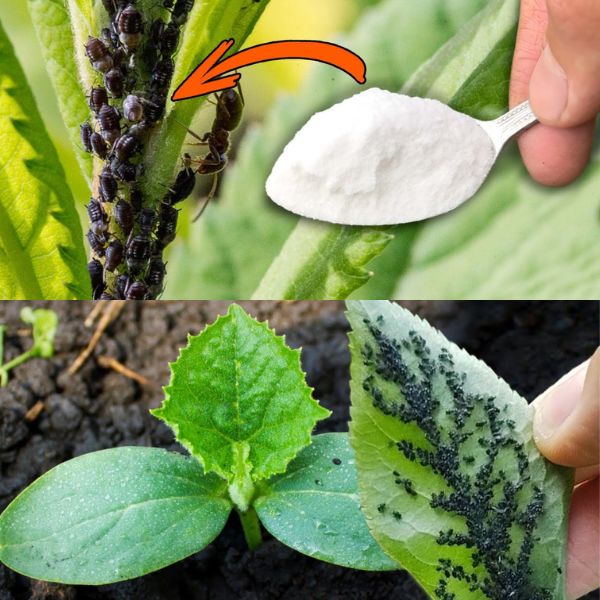Baking soda, or sodium bicarbonate, is indeed a versatile and useful product in the garden. Here are 12 clever ways to use baking soda in gardening:
Combating powdery mildew:
Mix 1 tablespoon of baking soda, 1/2 teaspoon of liquid soap, and 1 gallon of water. Spray this solution on plants affected by powdery mildew.
Fungicide for plants:
Baking soda can act as a natural fungicide. Mix 4 teaspoons of baking soda with 1 gallon of water and use it as a spray on plants susceptible to fungal diseases.
Control slugs:
Sprinkle baking soda around the plants to deter slugs. It helps keep these pests away without harming your plants.
Sweeten tomatoes:
Sprinkle a small amount of baking soda around the base of the tomato plants. This can help sweeten the tomatoes by reducing the acidity in the soil.
Neutralize soil pH:
Baking soda can be used to raise the pH of excessively acidic soils. However, it’s important to test your soil first and use it in moderation.
Clean gardening tools:
Make a paste of baking soda and water and use it to clean gardening tools. It helps remove dirt and grime, preventing the spread of plant diseases.
Clean flower vases:
Add a teaspoon of baking soda to the water in your vase to keep it clean and fresh longer and extend the life of your cut flowers.
Deodorize your compost bin:
Sprinkle baking soda into your compost bin to control odors and balance the compost’s pH.
Deter cabbage worms:
Dust cabbage and broccoli plants with baking soda to deter cabbageworms. Reapply after rain or watering.
Sweeten soil for beets:
Mix baking soda into the soil before planting beets to sweeten the soil, which can enhance the beets’ flavor.
Clean birdbaths:
Sprinkle baking soda on the sides of a birdbath and scrub to clean. Rinse thoroughly before refilling.
Refresh cut flowers:
Add a pinch of baking soda to the water in a vase of cut flowers. It can help keep the water fresh and the flowers vibrant.
Note: While baking soda is generally safe for plants, it’s important to test any solution on a small area first and apply it in moderation. Overuse can affect soil pH and compromise plant health. Additionally, it’s always advisable to consult gardening professionals or conduct soil tests for accurate recommendations.


